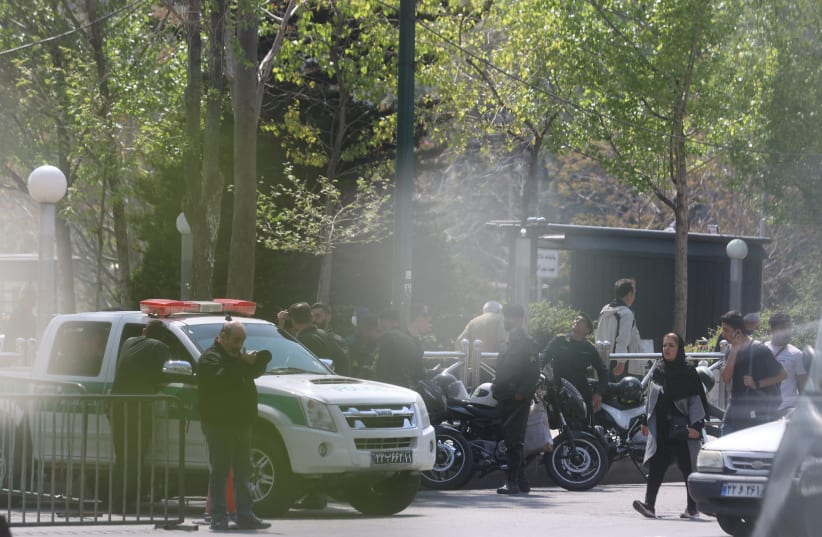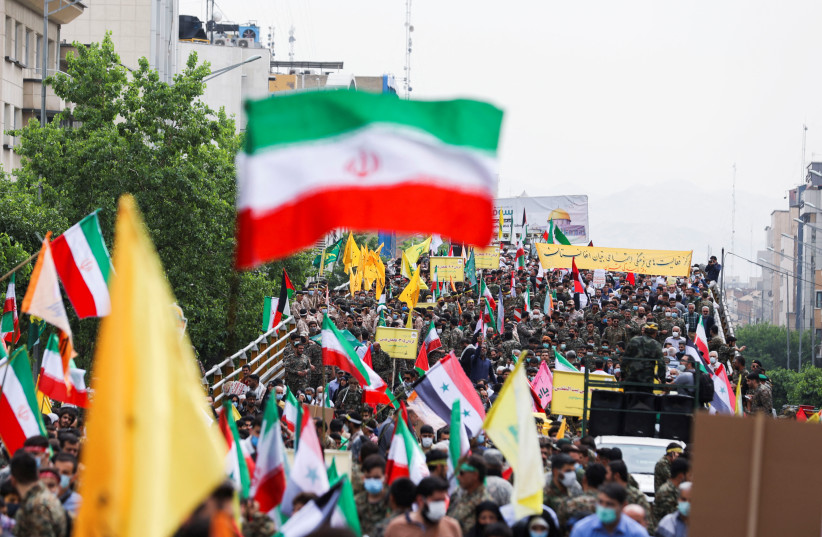Iran on Saturday executed two men who were convicted by an Islamic Republic court of the sex trafficking of Iranian women and girls across the Middle East and Asia, Iranian state media said.
Sara Jaref Driszadeh was found to have run a branch of the trafficking network run by Sharouz Sokhnori, better known by his alias 'Alex.'
It is said that the trafficking gang had also transported large quantities of drugs to be handed over to other gangs.
The network was discovered by the Islamic Republic, it said, who arrested and charged four of the victims with corruption and prostitution. One of the traffickers was found working in a school in Malaysia, where Iranian media alleged that they distributed fake qualification certificates to sex workers.
The Iranians behind the sex trafficking ring
It is claimed that 'Alex' created a fake international company, where he was able to provide false student visas to potential trafficking victims, which enabled the victims to retain residence in countries such as Malaysia. This process was allegedly sped up by an employee of the Iranian embassy in Malaysia, according to Iranian media.
The embassy connection allowed for false stamps to be placed on the victims’ passports so that they could then be trafficked to other countries.
In 2019, 'Alex' was extradited to Iran and, according to state media, responded to questioning by stating that he "came to Iran from Dubai nine years ago. Before entering Iran, I was in prison for five years and several months in the United Arab Emirates, when I was deported and came to Iran.
"After arriving in Iran, I met a girl named Sabia, who offered me to design a website,” 'Alex' was quoted by state media as saying.
“I started the site for her, and she used to upload pictures and numbers of girls on the site for prostitution. To improve my work, I took extensive measures and slowly got to know Sabia's main networks in Dubai, Malaysia, Ukraine and Azerbaijan.
How were victims selected for trafficking?
It is alleged that 'Alex' found some of his victims through their social media profiles. It is also alleged that some local celebrities had used their influence to bring girls to 'Alex.'
According to the report, 12 celebrities were involved in the ring, one of whom was identified as Masih who was said to have recruited 30 victims. For every victim they introduced, they were allegedly paid a sum of money.
Members of the trafficking ring had changed their contact details to avoid arrest but 123 different phone numbers were recovered, exposing the network. Alex’s phone also contained images of passports, birth certificated, national identity cards and photos of the victims. Iranian media also implied that a large number of pornographic videos and photos were held on Alex's device, which he reportedly used to blackmail his fellow traffickers.
It is alleged that Sokhnori's US-based mother was involved in the network. She is said to have founded a company in 2004, which enabled investments in the United Arab Emirates. It was through this company that funds were allegedly transferred to a company in Dubai.
Human trafficking in Iran
Former US President Donald Trump’s administration in 2017 added Iran to a US list of countries accused of failing to crack down on human trafficking. Two years later, the US State Department again designated Iran as a so-called Tier 3 country, the report's ranking for countries that do the least to tackle the crime.
Under a 2000 US law called the Trafficking Victims Protection Act, the United States does not provide non-humanitarian, non-trade-related foreign assistance to any country that does not comply with minimum standards for eliminating trafficking and is not making efforts to do so.
“The government of Iran does not fully meet the minimum standards for the elimination of trafficking and is not making significant efforts to do so,” said the 2019 State Department report.

